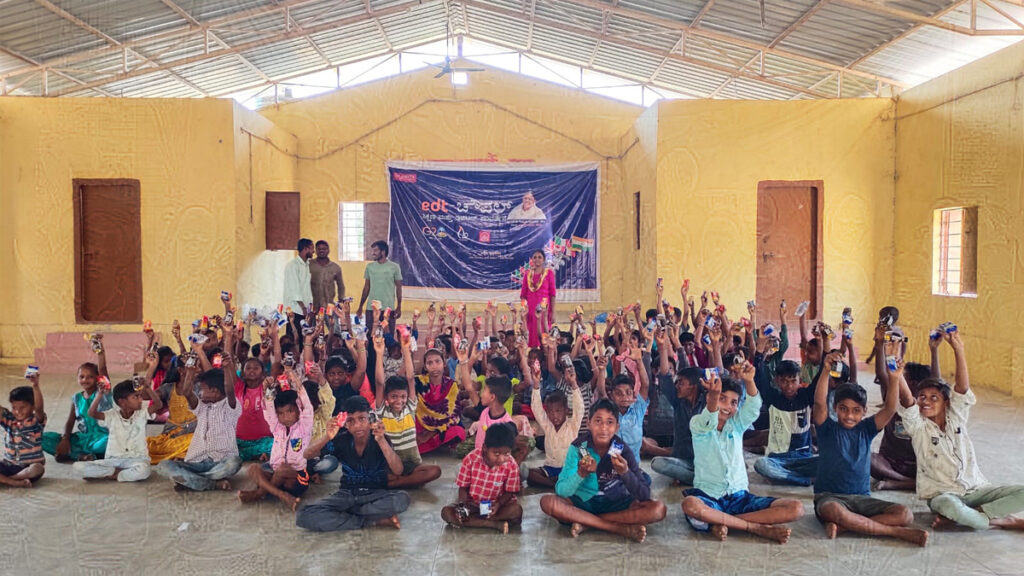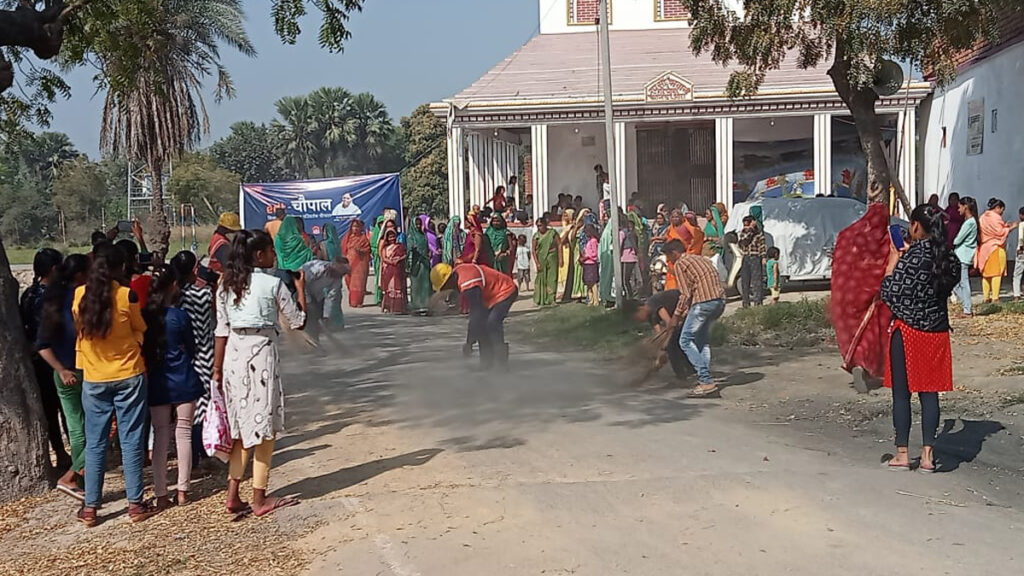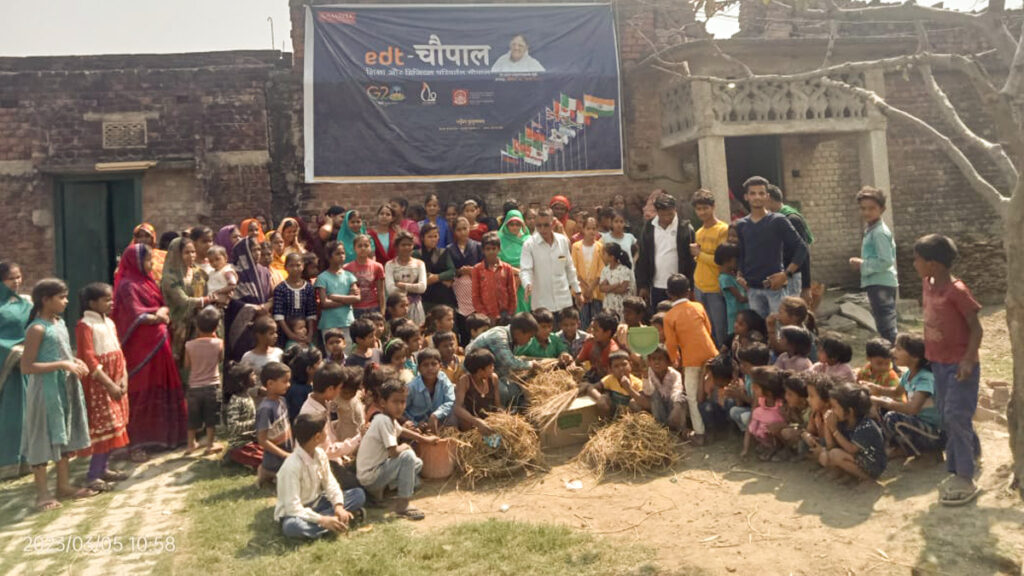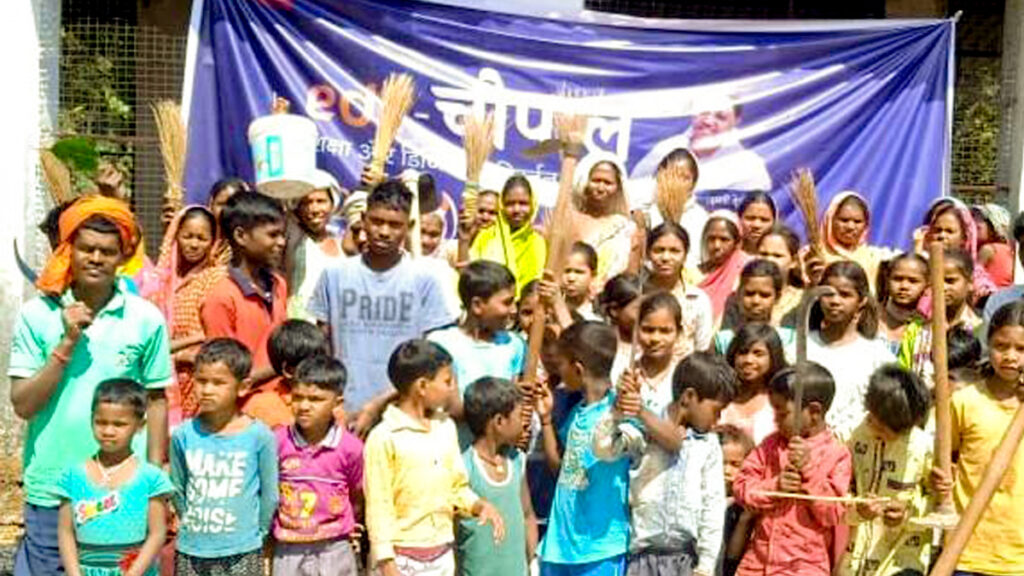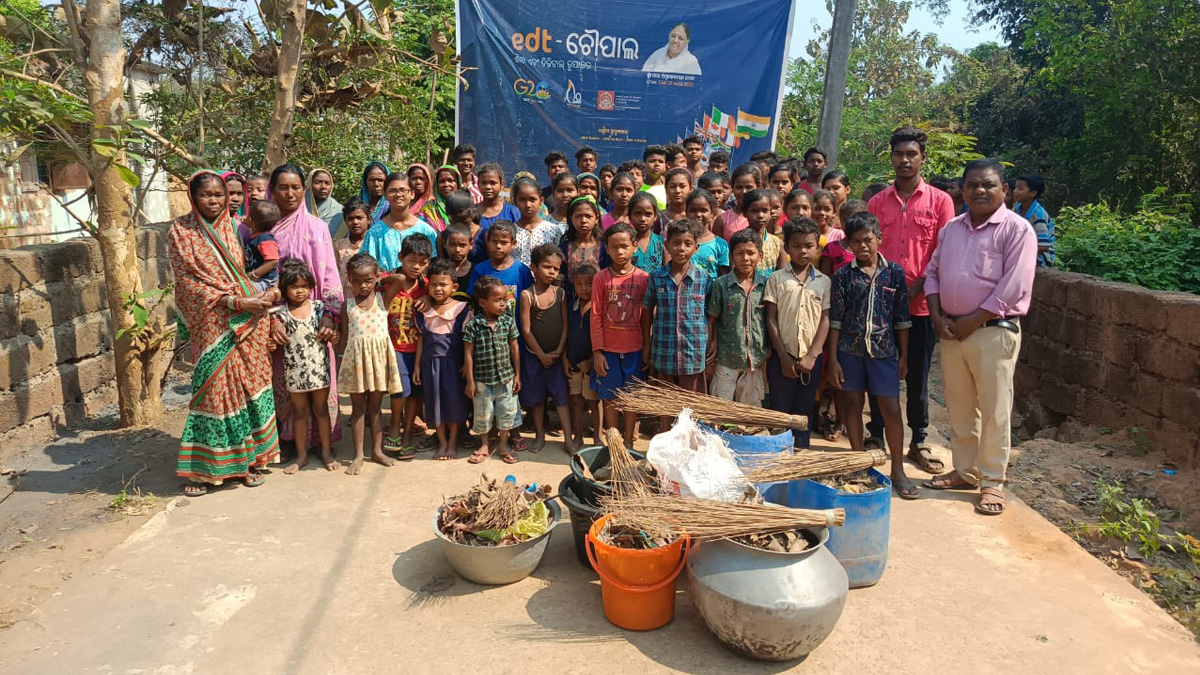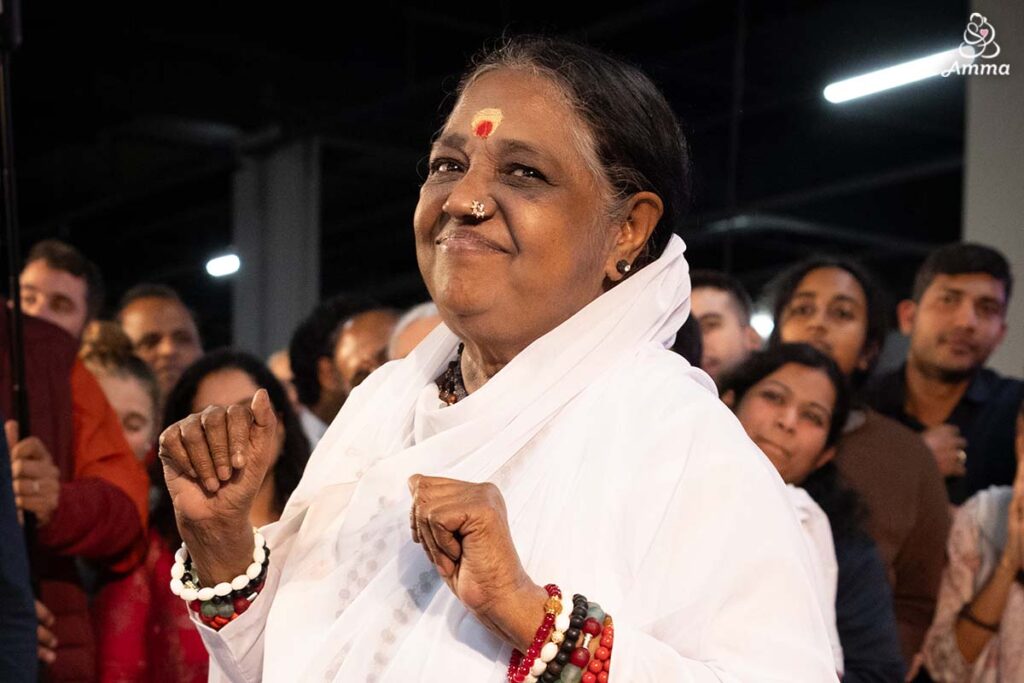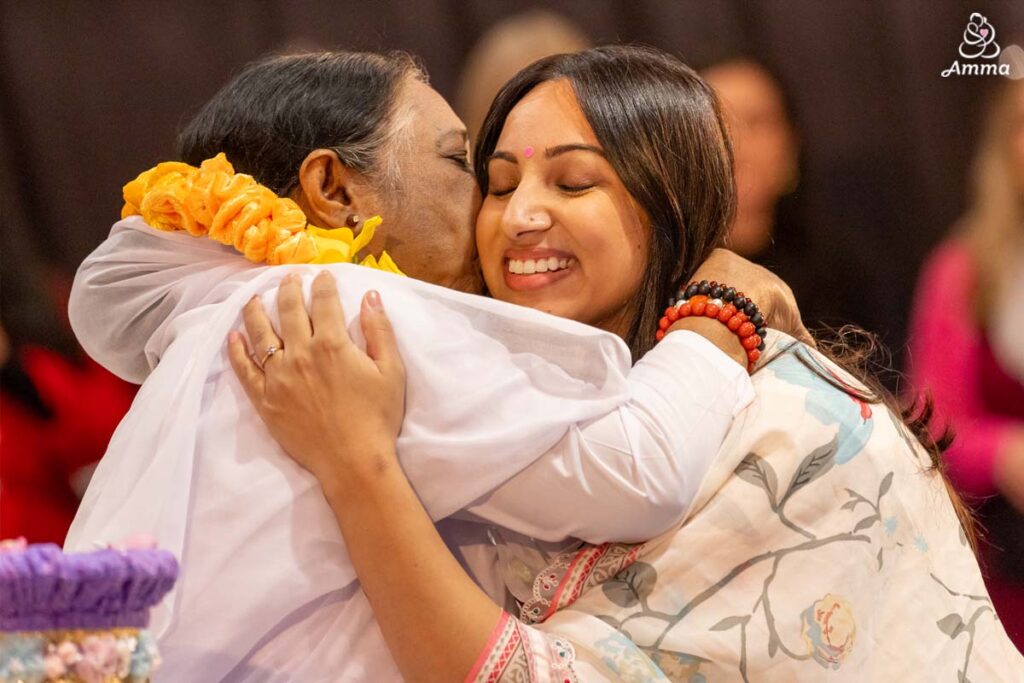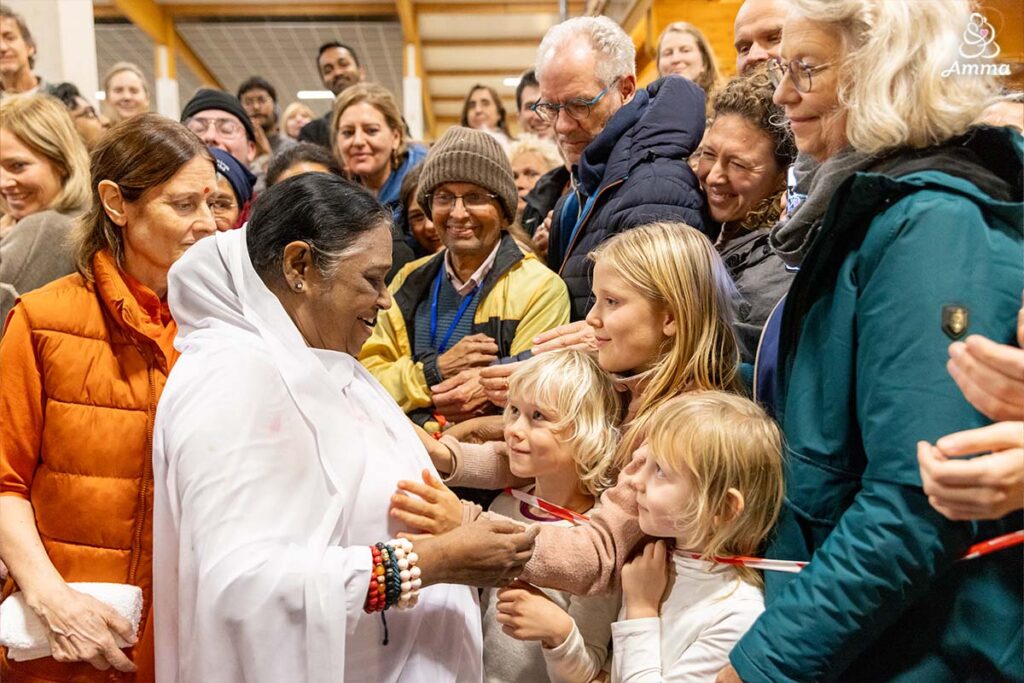Villagers exemplified India’s traditional concept of civic society where community members support each other through collective action.
For the first week of March, the Education and Digital Transformation (EDT) Working Group led Swacch Bharat drives in 29 villages across 13 states. Village volunteers cleaned up trash in public spaces to participate in the Govt of India’s efforts to address sanitation and hygiene for health and well-being. In all, 1,715 men, women, and children took part.
Under the Hindi word “chaupal”, the event took place within the exemplary concept of civic society in traditional villages where community members meet as a collective to discuss their problems, celebrate their happiness, and sort out their disputes under the consultation of village elders.
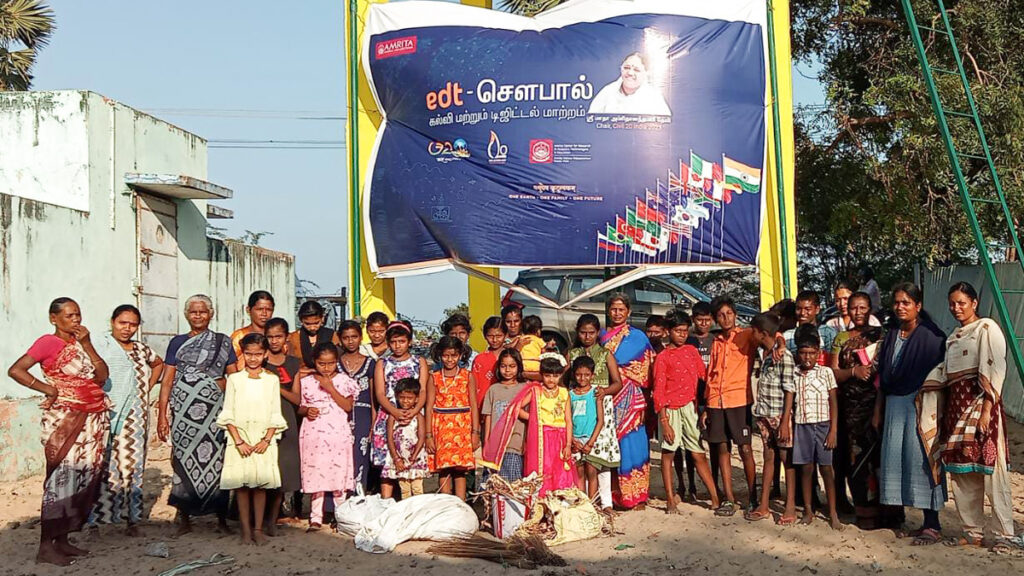
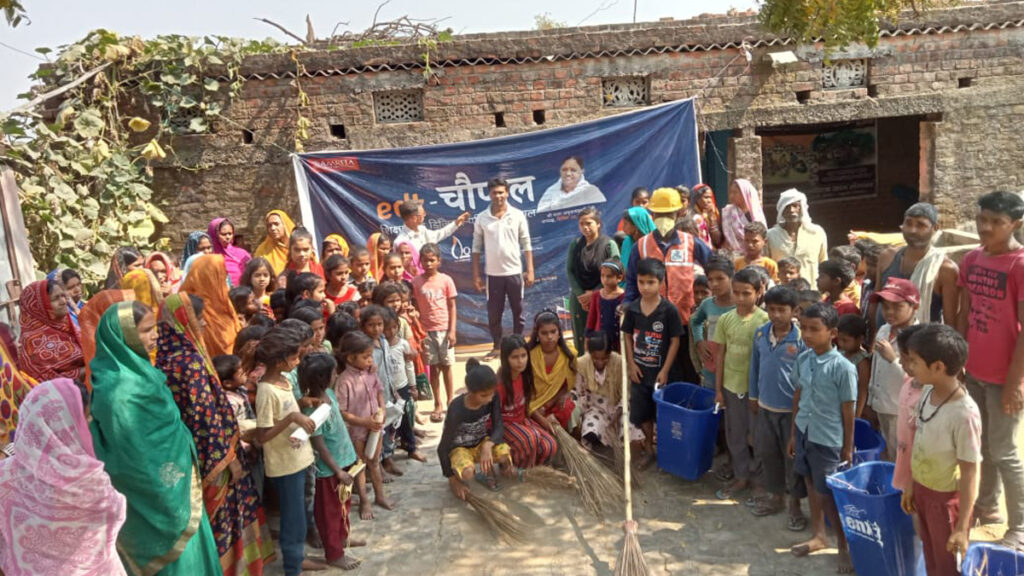
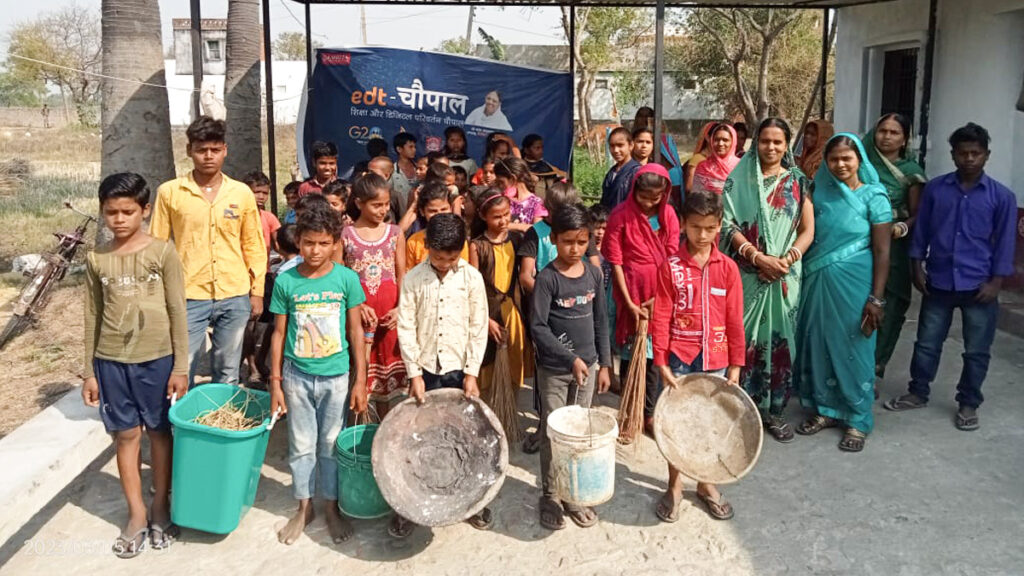
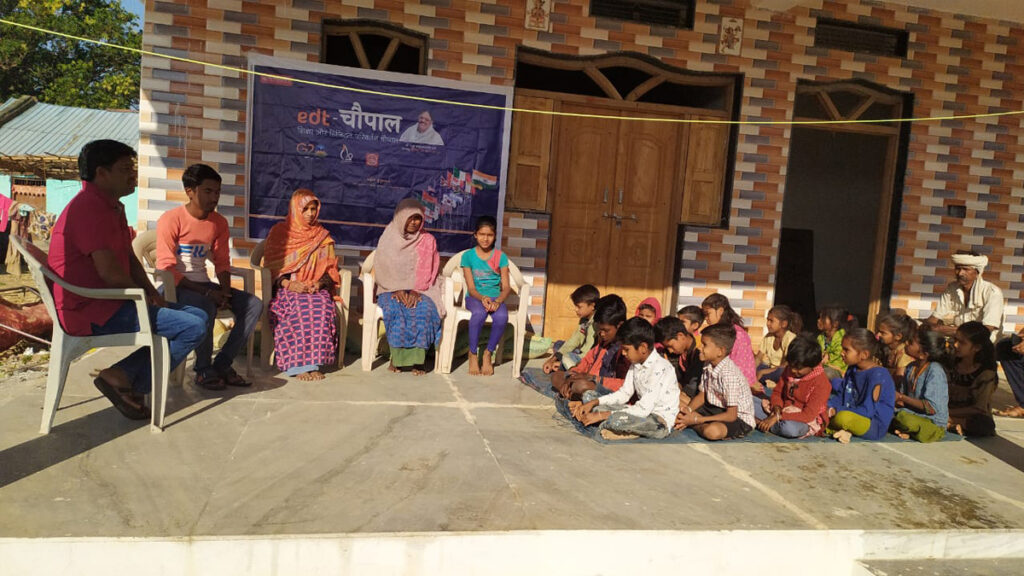
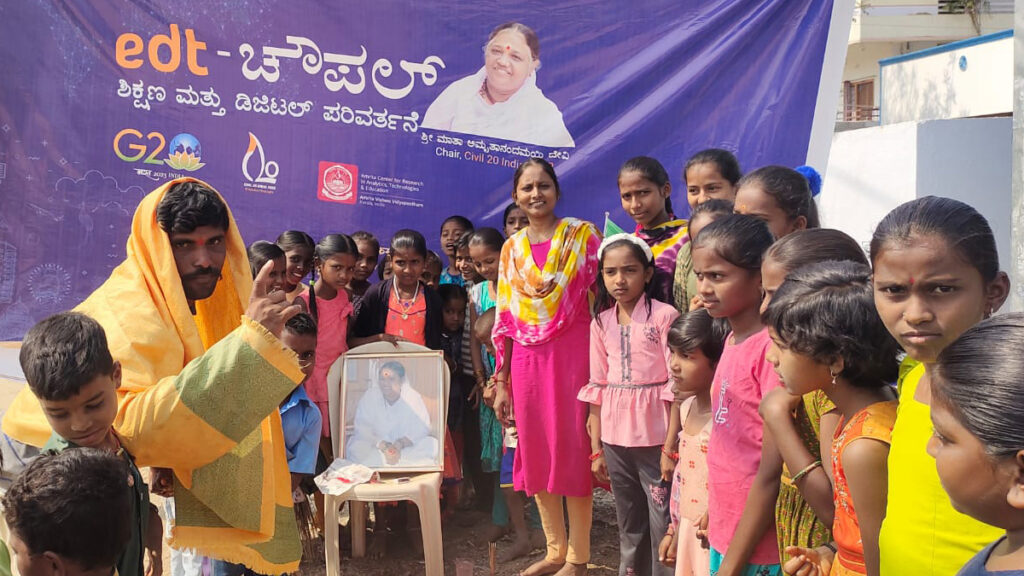
Alongside the public clean-up drive, village coordinators, teachers and members of the M.A. Math held an open dialogue and awareness meet with participants, especially school children, about cleanliness and hygiene. All the communities are part of the Ashram’s Amrita SeRVe (Self-Reliant Villages) initiative that has adopted 108 villages across India to usher in sustainable development.
Amrita SeRVe empowers these impoverished people with the skills they need to evolve into communities that are prosperous and self-reliant. They will establish places where they are healthy and educated and where they lead lives of dignity in a clean, pollution-free environment. The programme is aligned with the United Nations 17 Sustainable Development Goals (SDGs).
